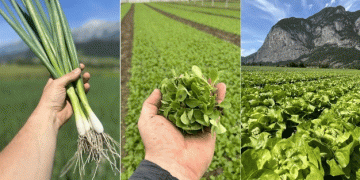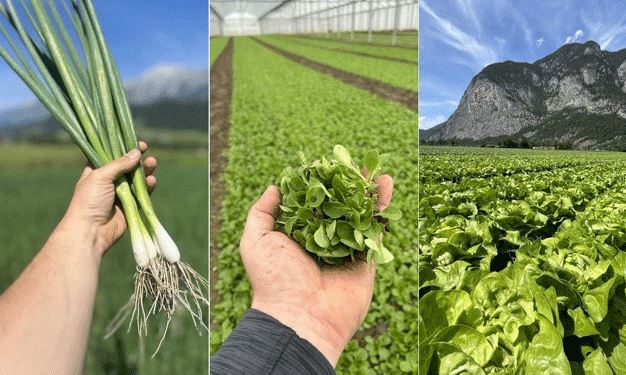The Tyrolean vegetable harvest is well underway, with crops like lettuce, iceberg lettuce, kohlrabi, and spring onions being gathered from open fields. Andreas Norz, director of Ulrichshof in Hall in Tirol, reports that this year’s conditions are far better than in 2023, when extreme hailstorms caused severe losses—up to 100% in some fields.
“This season, we’ve been spared such extreme weather,” says Norz. “Tyrolean vegetable farmers are managing the current dry spell well, thanks to fully irrigated fields.” However, long-term sustainability remains uncertain due to political and economic hurdles.
40 Years of Innovation—But Challenges Persist
Ulrichshof, celebrating 40 years in vegetable farming, specializes in open-field crops, primarily supplying Austrian retailers. Over the years, the farm has optimized operations to meet market demands, ensuring high efficiency. Yet, challenges like labor costs and climate volatility have forced changes—strawberry cultivation has declined, while new trials with melons (Cantaloupe and mini-watermelons) are underway in greenhouses.
Limited Growth Potential Despite High-Quality Production
Tyrol produces premium vegetables—radishes, cauliflower, and broccoli—benefiting from cool nights and warm days. However, Norz sees little room for expansion.
- Land Scarcity: Lease prices are high, and available farmland is limited.
- Regulatory Barriers: Strict laws hinder expansion and innovation.
- Lack of Political Support: Norz notes, “There seems to be little political or societal will to further develop vegetable farming in Tyrol.”
A Call for Policy and Investment
Tyrolean vegetable farming remains resilient, but without policy reforms and investment in land accessibility and climate adaptation, growth will stagnate. Farmers and agronomists must advocate for supportive measures to sustain this vital sector.































